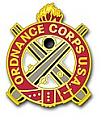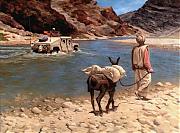The military's unified command responsible for engagement activities across Africa will work in tandem with other U.S. government agencies to assist partner nations there to confront poverty, disease, terrorism and other challenges, a senior U.S. officer said today.
"We are not looking to take the lead for any other government-agency work that they are doing today across the continent or our international partners," Navy Vice Adm. Robert T. Moeller, U.S. Africa Command's deputy to the commander for military operations, told "bloggers" and Internet reporters during a conference call.
AFRICOM will team with the U.S. State Department and other U.S. agencies and organizations to assist African partners to combat AIDS, malaria and other challenges that affect regional stability and security, Moeller explained.
"The establishment of AFRICOM is not about the deployment of [sizeable U.S.] forces to the continent or the establishment of bases," Moeller emphasized.
A key point is that African nations are taking the lead in their relations with AFRICOM, which will assist those countries in developing the capacities they need to help themselves, Moeller said. Source: DefenseLink

















Bookmarks